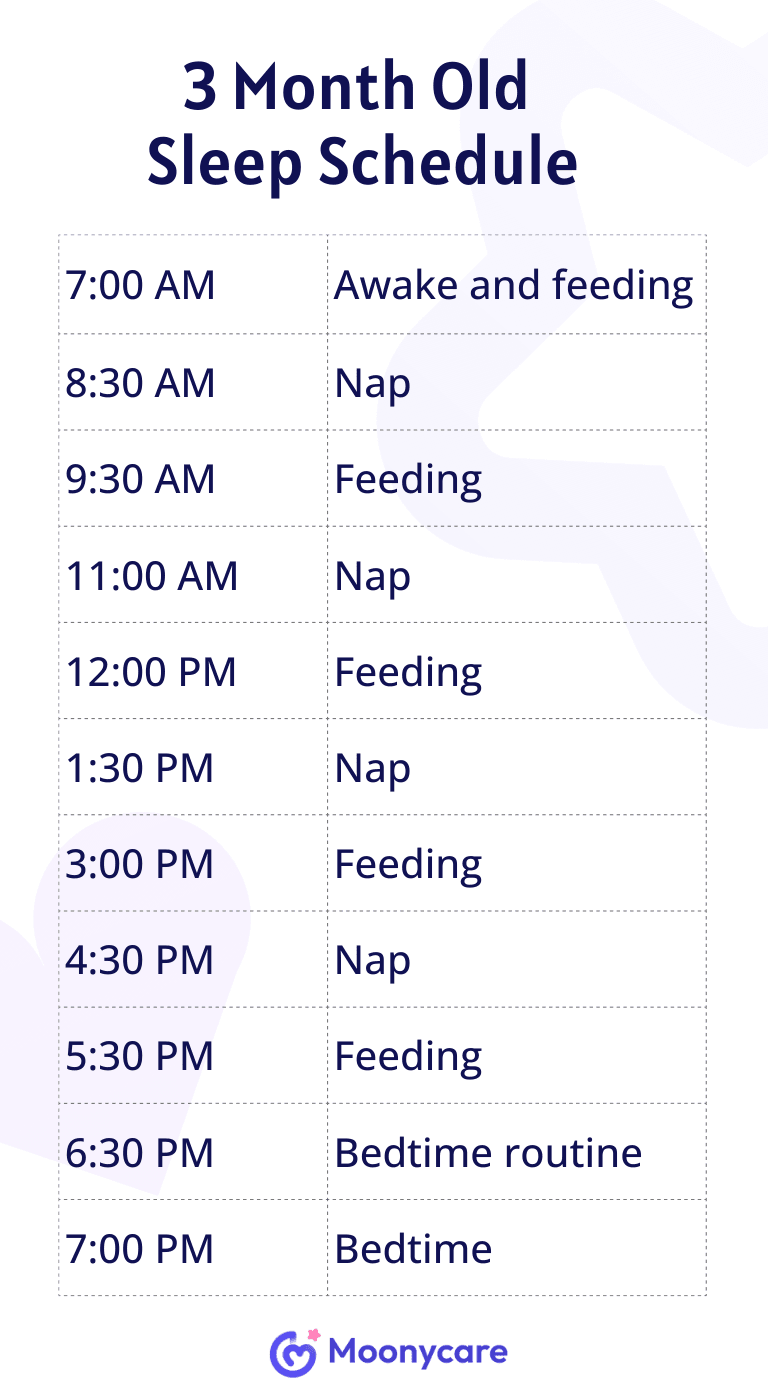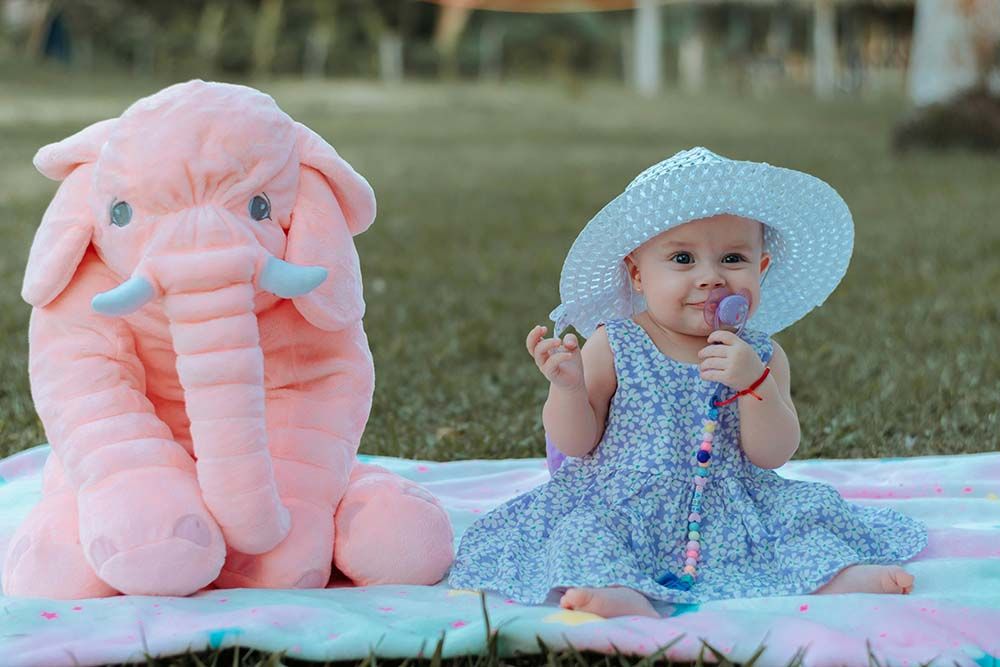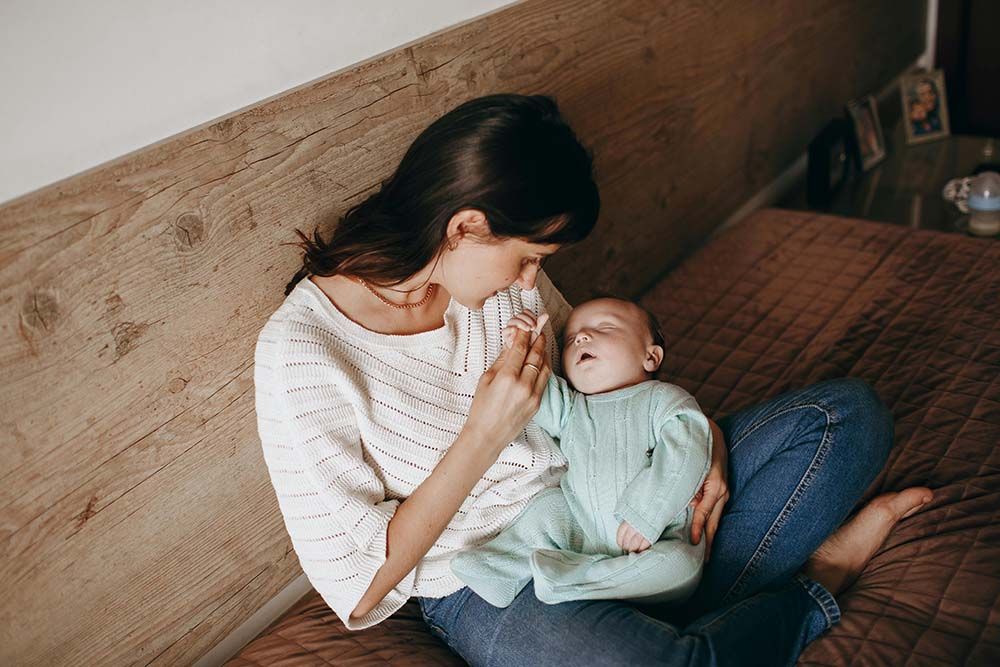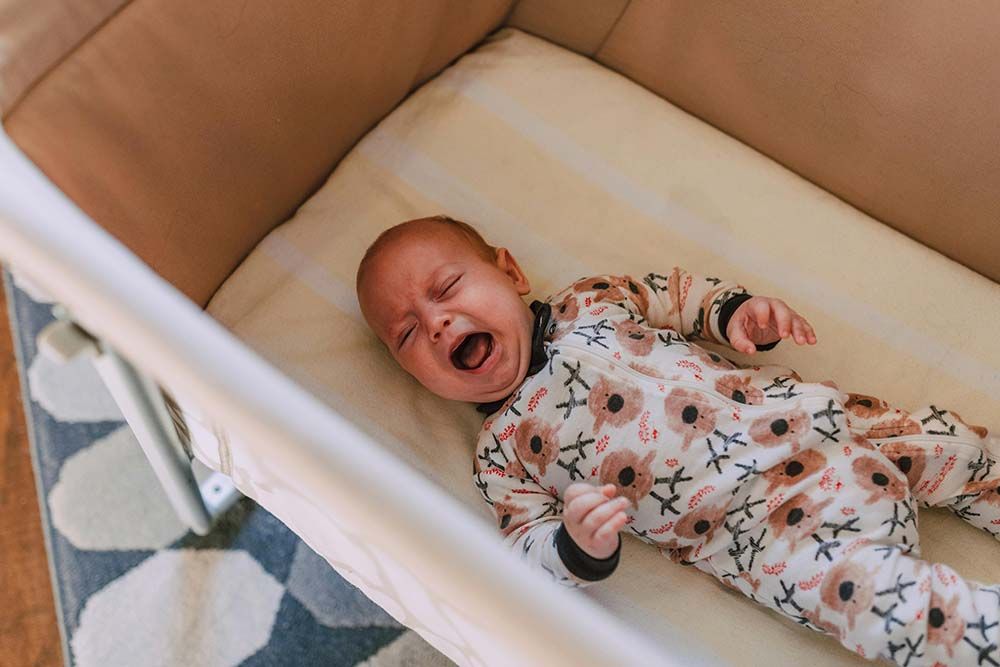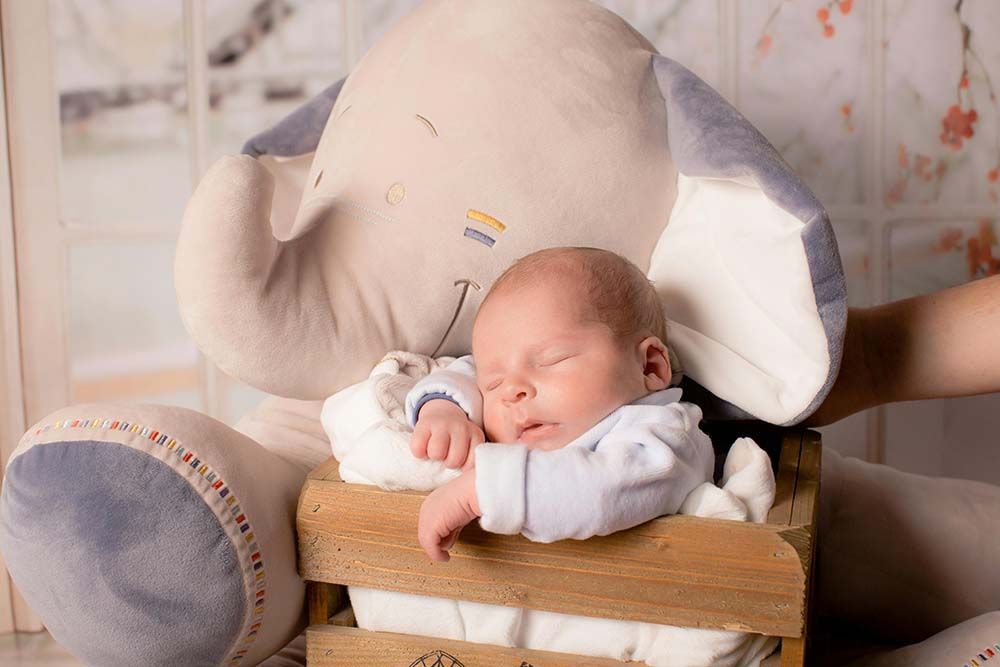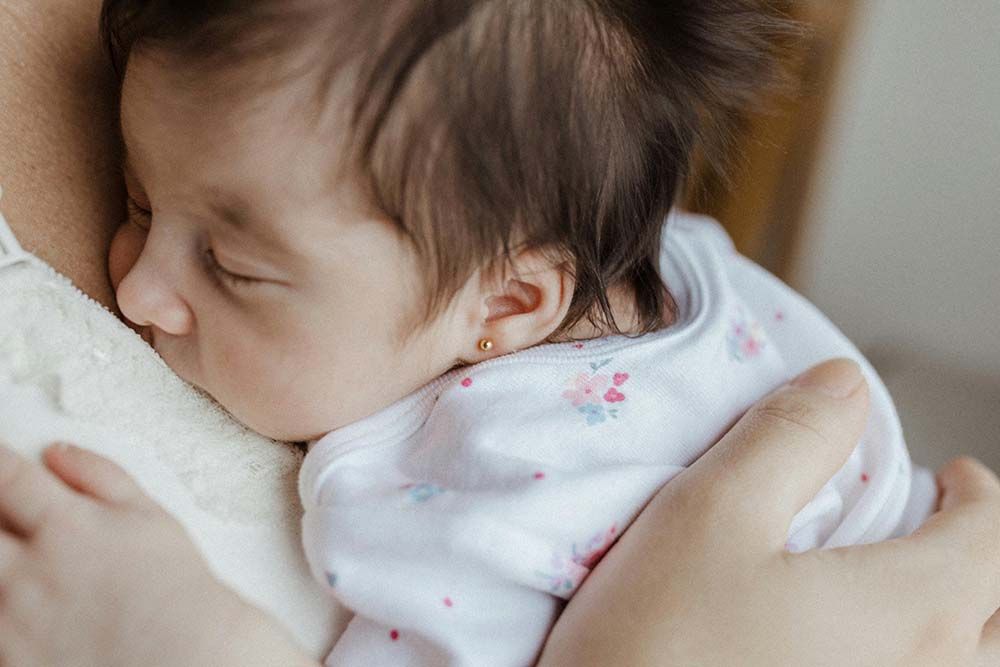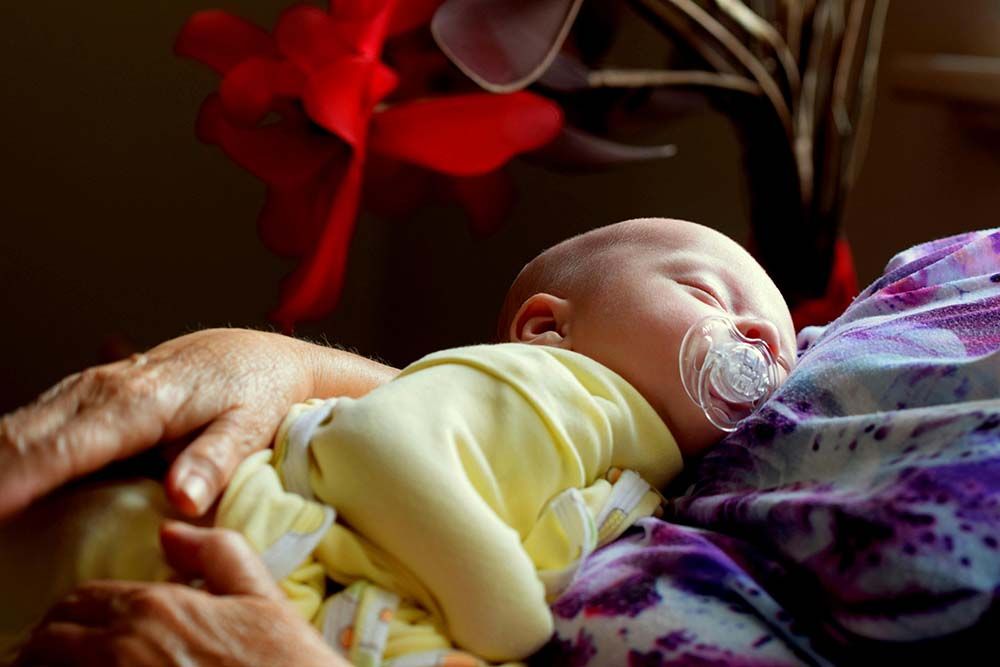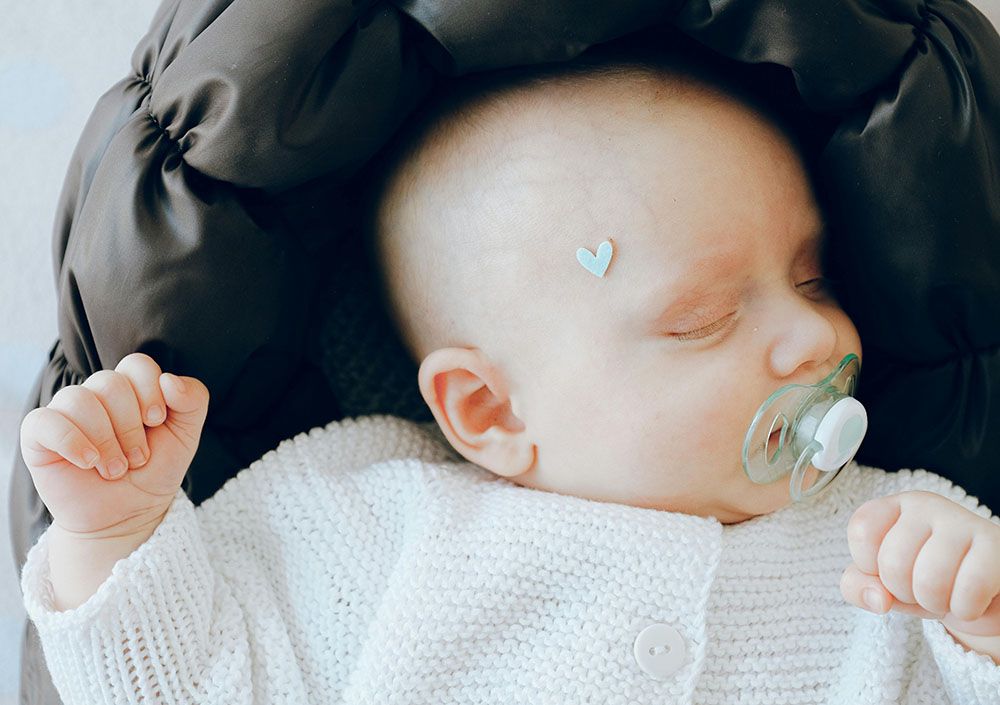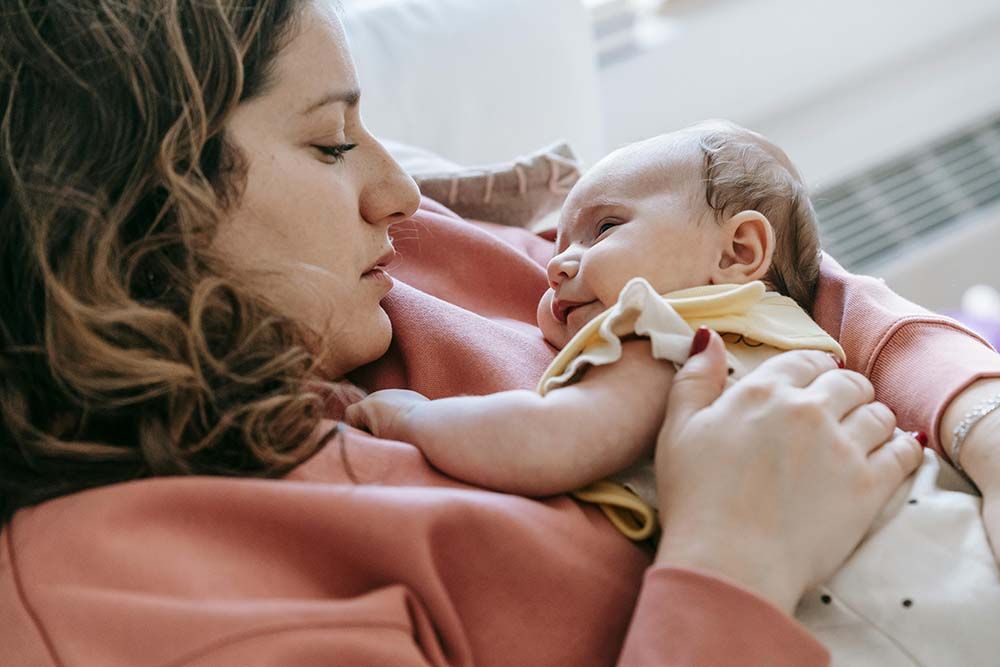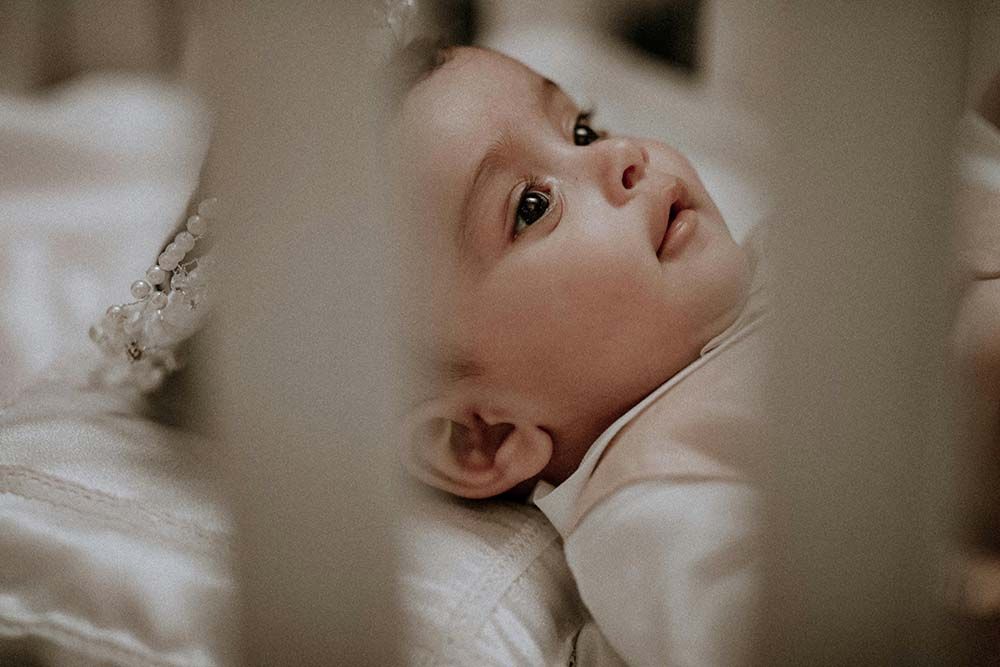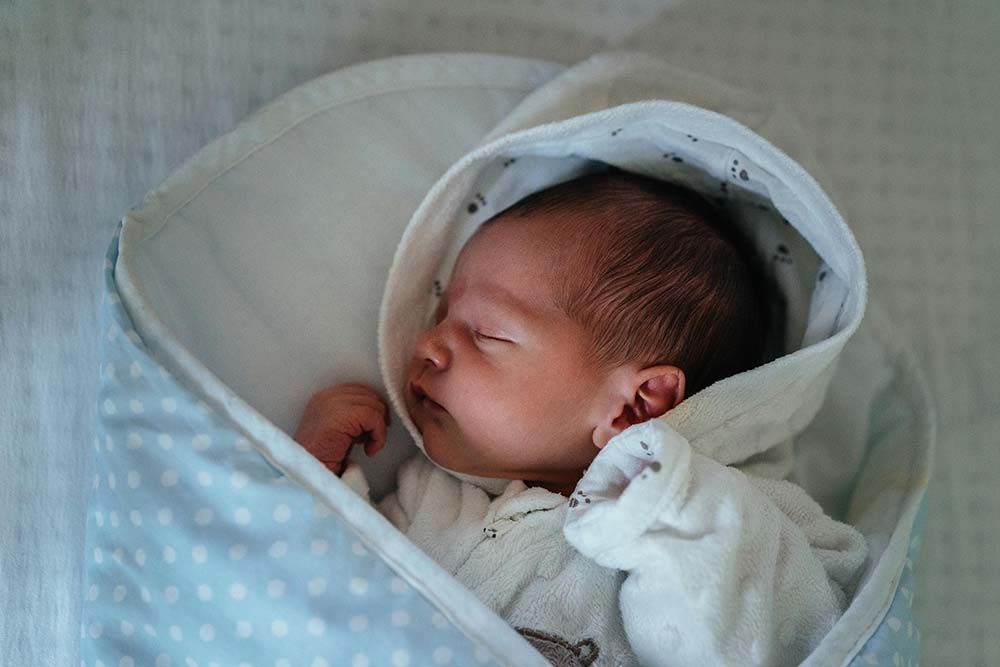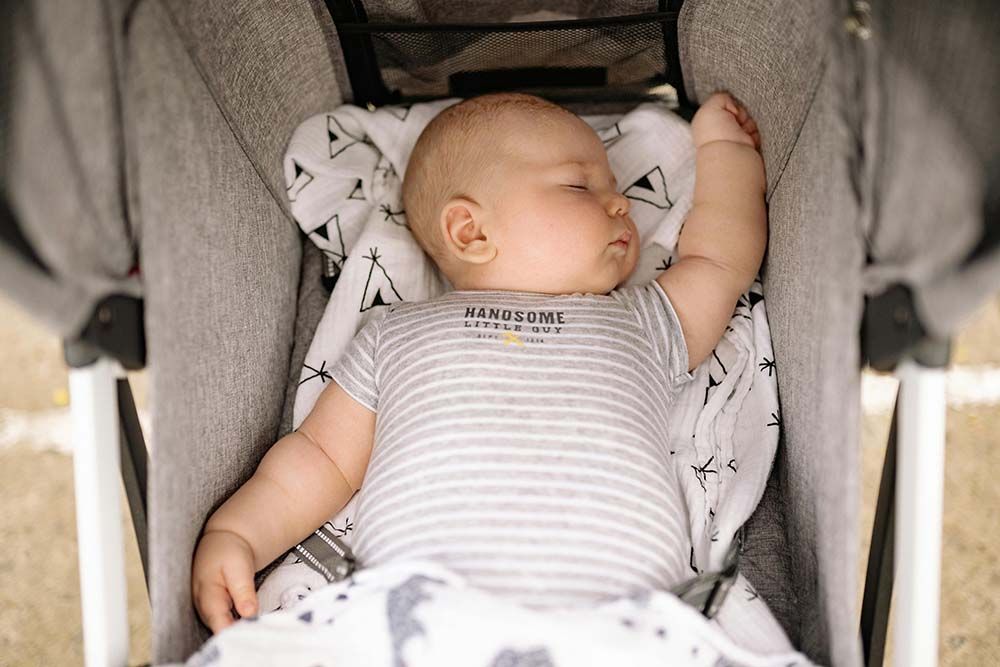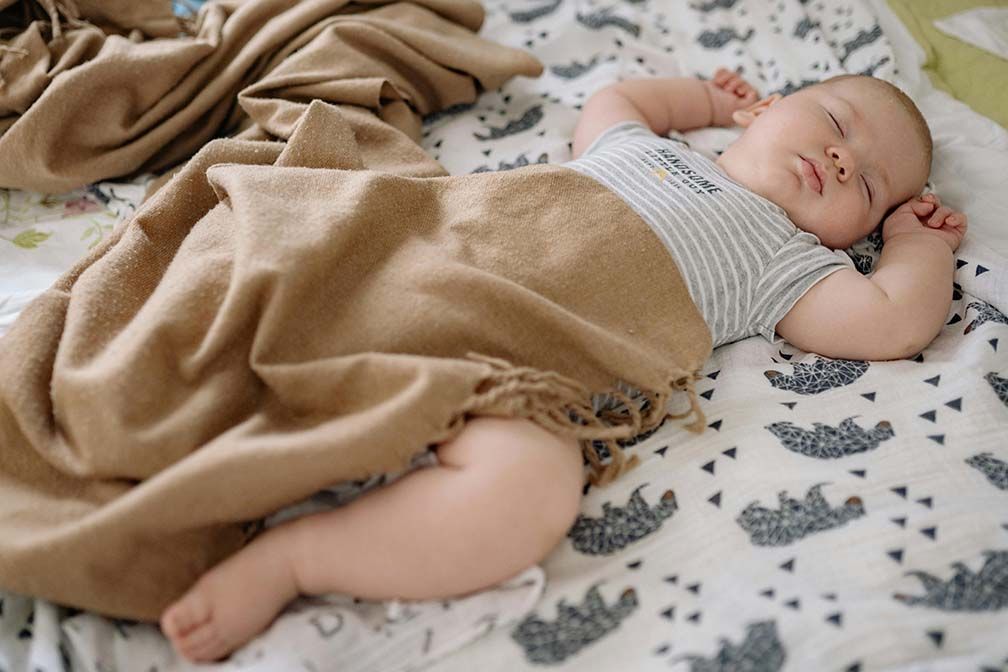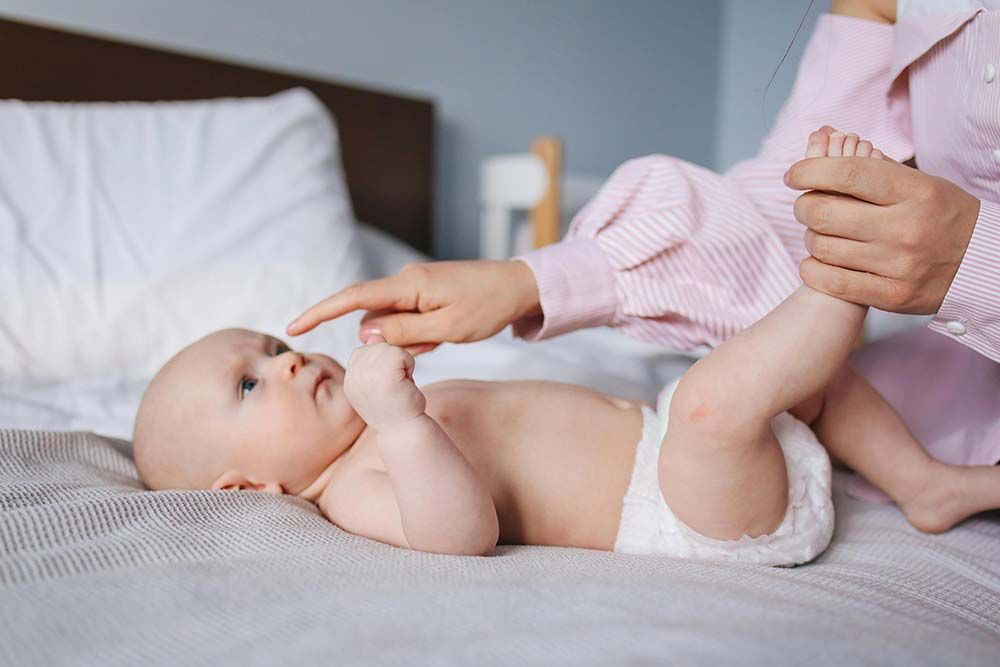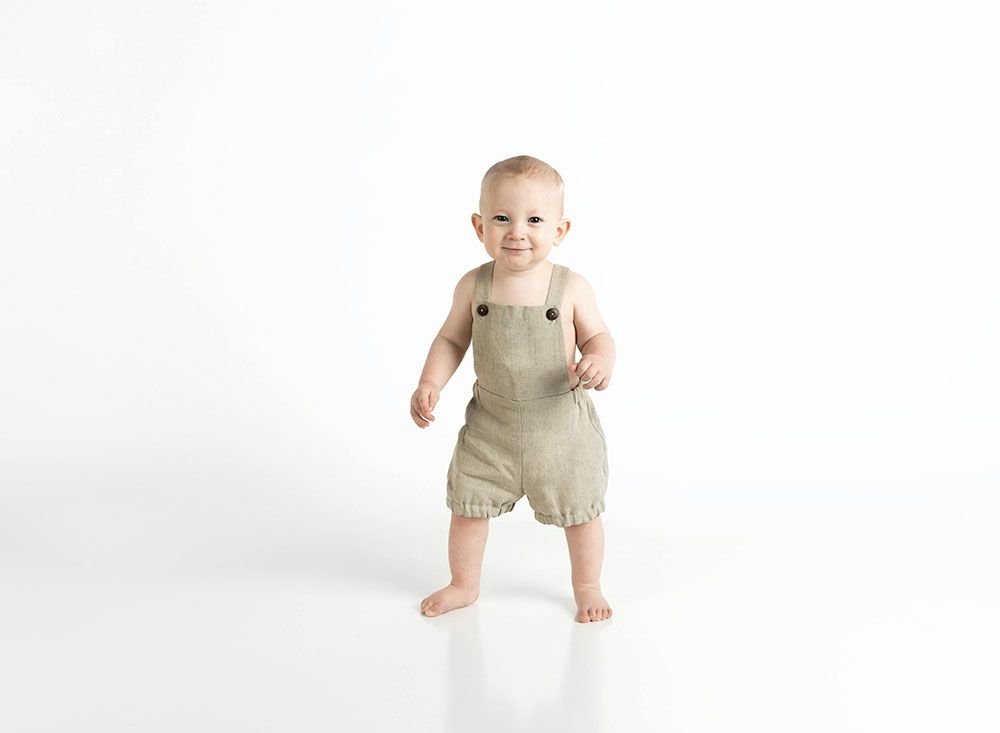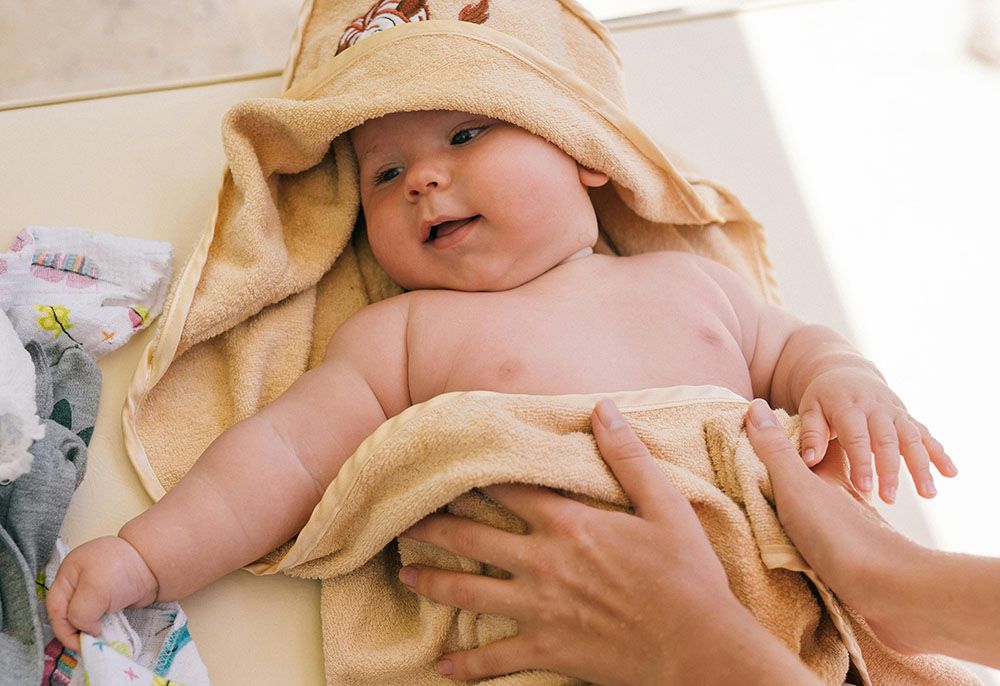

When babies reach three months, they tend to become much more active during the day and are gradually outgrowing their newborn sleep patterns. At this age, you may spot noticeable differences in your baby's sleep, including more frequent night wakings and shorter naps.If you want to figure out the reason and the according solution, please read this post for more details about 3 month old sleep schedule.
New sleep demanding for new age!
As your little baby keeps growing and changing, their sleep demands also change. Your 3-month-old baby might be accustomed to a more settled sleep routine. Utilize the Moonycare app to effortlessly track their sleep, which enables you to obtain a comprehensive view of their habits and accordingly change their development schedule scientifically.
IN THIS ARTICLE:
What are Wake Windows for a 3 Month Old?
Sample for 3 Month Old Sleep Schedule
How Much Should a 3 Month Old Sleep?
How Long Should a 3 Month Old Nap?
How Many Daily Naps are Expected for a 3 Month Old?
Can 3 Month Old Babies Start Sleeping Through the Night?
Can you Sleep Train your 3 Month Old?
What are Wake Windows for a 3 Month Old?
The usual period of wake windows for a three-month-old ranges from 75 to 110 minutes. During these initial months, it's normal and expected that naps will fluctuate significantly each day. Thus, remember that the wake windows are typically shorter in the morning, while longer before going to bed.
Each baby is distinctive, and your little one's day depends on when your baby wakes up, the duration of your baby's naps, and personal signs. Sleepy signs remain a crucial means to determine if your three-month-old is prepared for a nap, so keep an eye out for those cues from your little baby.
Sample for 3 Month Old Sleep Schedule
Every baby is unique and their routine cannot be predictable precisely. However, an exemplary schedule may go on approximately as follow listed:
How Much Should a 3 Month Old Sleep?
At 3 month old, the sleep time requires between 14 and 17 hours within a 24-hour span, encompassing 3 or 4 naps amounting to 4 to 6 hours. Since every baby is distinct, it is also ordinary for the babies at this age to sleep slightly more or less than this range.
Nevertheless, your 3-month-old might have longer periods of sleep during the night, potentially five hours or more for once time. Don't be alarmed if your little one doesn't perform like this, because some babies wakes wake up frequently to eat every few hours at this time.
How Long Should a 3 Month Old Nap?
For 3-month-old babies, it is ideal to obtain an average of 4 - 5 hours of daytime slumber. At this age, naps are still in line with the development process, so that the naps can be brief and irregular, which is common. Normally, the nap time lasts 30 - 45 minutes, as well as longer ones of 1 - 2 hours. Short naps ensure that your baby has ample waking time during the day to intake their daytime calories, which helps you strive for longer intervals of sleep at night.
How Many Daily Naps are Expected for a 3 Month Old?
It is largely up to the duration of your baby's naps. Most babies aged around 3 months usually take approximately 4-5 naps each day, and this is likely to differ from one day to another. Moreover, due to the diverse naps, the wake windows of your baby can be different between every nap.
To ascertain the most suitable time, as you reach the 75 - 110 minute wake window, pay attention to your baby's sleep cues (becoming quiet and motionless, gazing vacantly into the distance). To monitor the wake windows, you can also utilize the Moonycare Sleep Tracker, which can even assist you in recognizing patterns in your baby's sleep routine.
Can 3 Month Old Babies Start Sleeping Through the Night?
Each baby is distinctive, and there isn't a particular age for this. The most significant alterations in infants' sleep patterns happen within the first 4 months of life. Most babies of this age will still wake up at night for feedings. But for some three-month-old babies, it's acceptable for them to sleep without a feeding as long as you respond to their hunger cues during the day.
Can you Sleep Train your 3 Month Old?
The expression "sleep training" pertains to various methods of teaching your baby to sleep throughout the night. To be honest, formal sleep training at this age is not developmentally proper, because 3-month-olds are still experiencing considerable brain development variations and transitioning from newborn sleep patterns to more adult-like ones. If you're contemplating sleep training, it is advisable to wait until your baby is 4 to 6 months old.
Sleep Tips for 3 Month Olds
Here are some sleep tips to help you foster healthy sleep habits for your baby:
Interact with your baby at daytime. Playing with your baby when he's awake from naps can help him distinguish between day and night.
Maintain a routine. Making a soothing and consistent routine before bedtime can indicate the baby that it's time for sleep, including bathing your baby, listening to gentle music and reading in a low voice, etc.
Notice your baby's sleep inclinations. Your baby might have a favored bedtime now. About 30 minutes before that time, start his routine to help him wind down.
Attempt to put your baby to bed when getting drowsy. If your baby is drowsy but not asleep yet, placing the baby in his crib helps him get accustomed to falling asleep independently.
Remain flexible. While a more organized routine is coming, it's normal for babies at this age to have fluctuating schedules.




